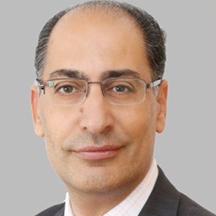The hidden potential of Jordan’s small firms for driving a green transition
For Jordan, a green transition represents an enormous transformative opportunity. But a decade-long increase in the use of renewable energy has not freed the country of its economic woes. This column explores the currently underused yet potentially powerful force of micro, small and medium-sized enterprises – and proposes policies that could improve the investment climate and clear legislative and regulatory barriers.
Jordan: navigating through multiple crises
Jordan’s real GDP per capita is today no higher than it was 40 years ago. While external factors have undoubtedly had an adverse effect on the country’s economic outcomes, weak macroeconomic management and low public spending on investment and the social sectors have also played a substantial role. This column explores what can be done to reduce high public debt, accelerate private sector development and enhance social outcomes.


